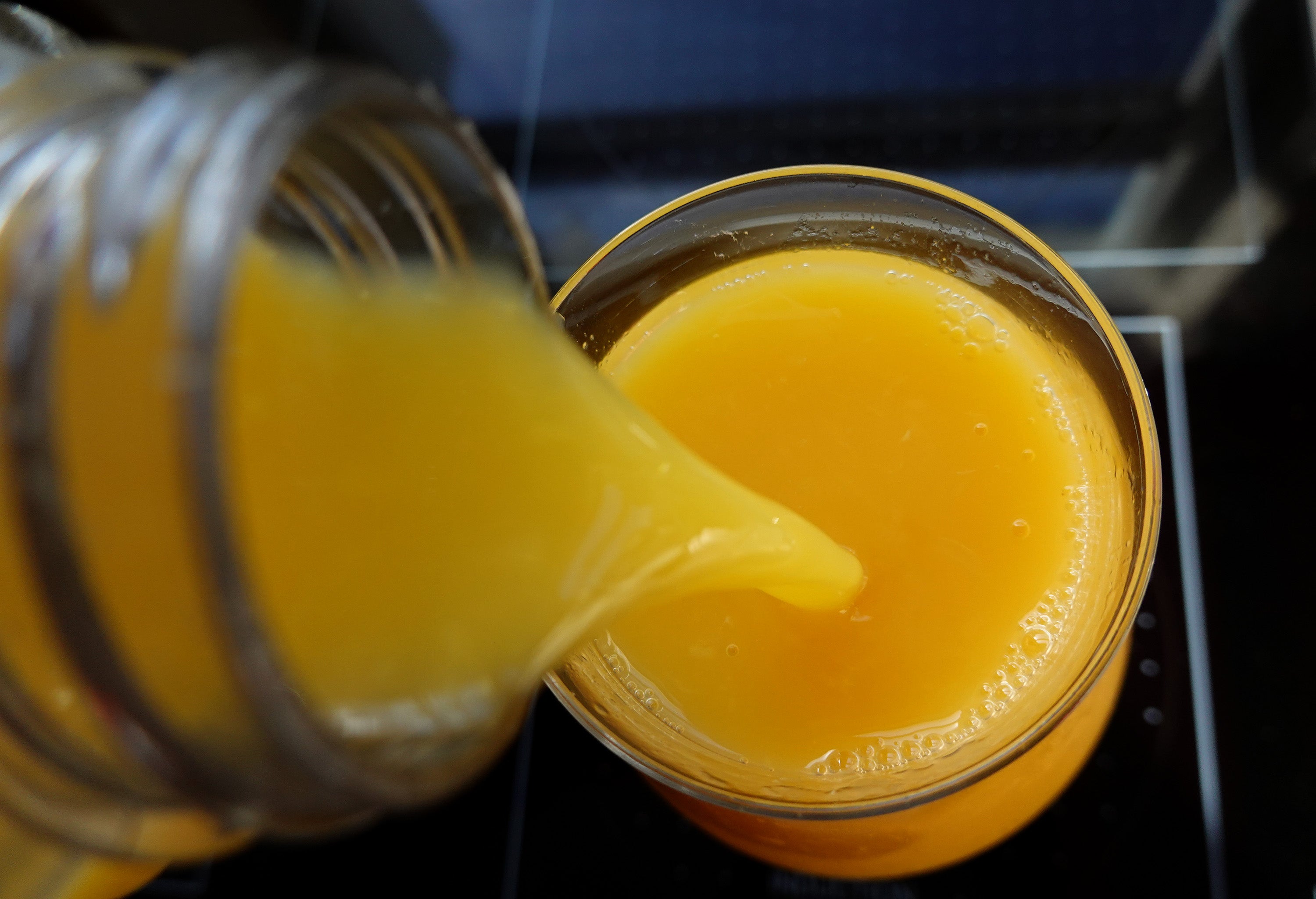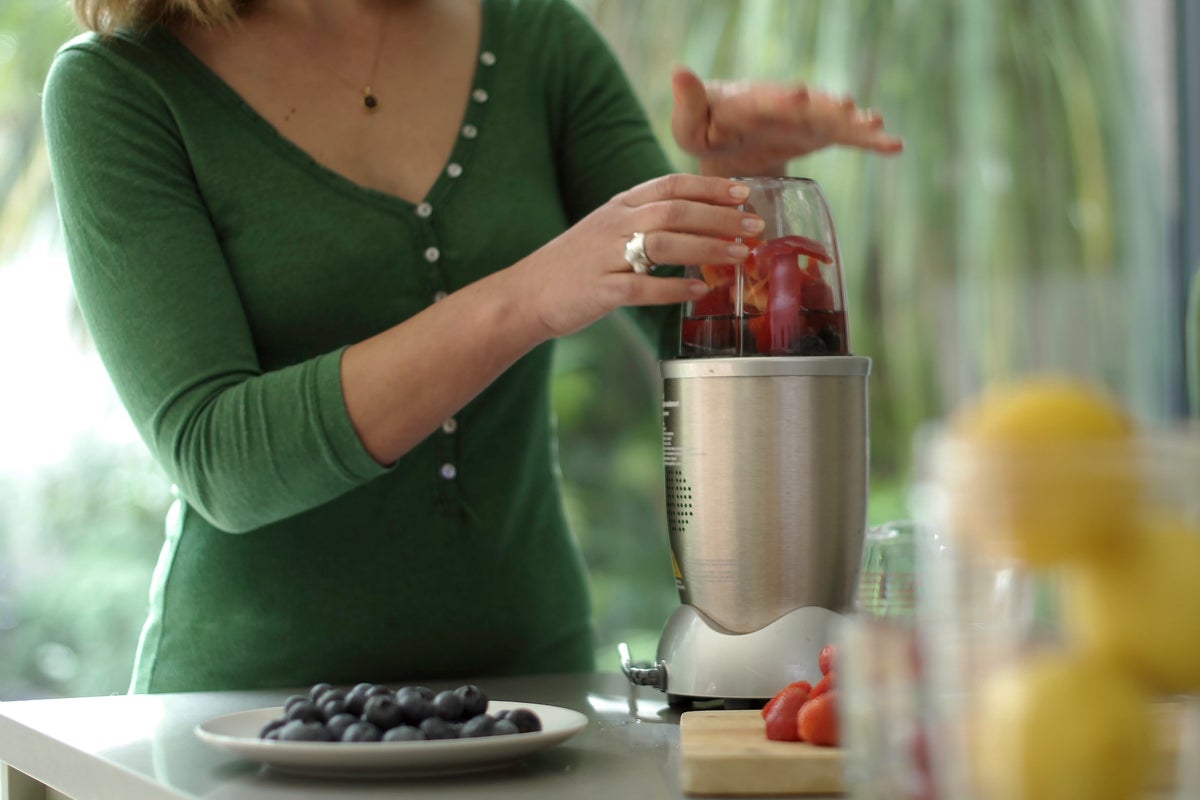Your support helps us to tell the story
From reproductive rights to climate change to Big Tech, The Independent is on the ground when the story is developing. Whether it’s investigating the financials of Elon Musk’s pro-Trump PAC or producing our latest documentary, ‘The A Word’, which shines a light on the American women fighting for reproductive rights, we know how important it is to parse out the facts from the messaging.
At such a critical moment in US history, we need reporters on the ground. Your donation allows us to keep sending journalists to speak to both sides of the story.
The Independent is trusted by Americans across the entire political spectrum. And unlike many other quality news outlets, we choose not to lock Americans out of our reporting and analysis with paywalls. We believe quality journalism should be available to everyone, paid for by those who can afford it.
Your support makes all the difference.Read more
Have you heard of a “cortisol cocktail”? Rather than something you might order at a bar, this drink is one of the latest wellness trends floating around social media.
Proponents claim the drink – which is made with ingredients including orange juice, coconut water and salt – can lower high cortisol levels and help with “adrenal fatigue”. This, in turn, is supposed to lead to a range of benefits, from reduced stress to improved energy levels.
But can a cortisol cocktail really achieve these things? And do we actually need to lower our cortisol levels in the first place? Let’s see what the evidence says.
First, what is cortisol?
Cortisol is often portrayed as being bad for us, but we couldn’t live without it.
Cortisol is a hormone produced by the adrenal glands. The adrenal glands also produce many other hormones, including adrenaline, sex hormones and aldosterone (this helps balance salt in the body and affects blood pressure).
Cortisol is regulated by the brain in response to stress. Physical stress (for example, injury or sleep deprivation) and psychological stress (such as work pressures or grief) stimulate the stress response – also known as the fight-or-flight response – and cortisol secretion.
We often hear cortisol described as “the stress hormone”. But cortisol has many other important functions too – it increases glucose (sugar) in the blood to provide energy, regulates metabolism and reduces inflammation.

open image in gallery
Cortisol is regulated by the brain in response to stress (Getty/iStock)
Our bodies constantly produce cortisol, but the level changes with the daily light-dark cycle. It increases just before we wake, is highest during the morning, drops off in the afternoon and is lowest overnight.
We want high cortisol in the morning to wake us up and release energy. We also want higher cortisol in stressful situations, for example, if we need to run for a train or be alert during an important discussion. On the flip side, we want low cortisol overnight to help us sleep.
But there’s often a misunderstanding about high versus low cortisol.
Many symptoms regularly blamed on high cortisol, such as weight gain and tiredness, are in fact linked to low cortisol. People with chronic fatigue syndrome frequently have low cortisol.
Chronic stress can lead to higher cortisol secretion, but ongoing stress can also cause low cortisol.
Notably, adrenal fatigue, which is not a medically recognised condition, means the adrenal glands produce less cortisol.
So it doesn’t make sense to suggest a cortisol cocktail could help with both high cortisol and adrenal fatigue (low cortisol).
What’s in a cortisol cocktail?
Recipes vary, but typically the ingredients are half a cup each of orange juice and coconut water, around one-quarter of a teaspoon of salt, and sometimes extra potassium or magnesium powders.
The health claims are linked to the vitamin C from the orange juice, the potassium from the coconut water, the added magnesium, and the sodium from the salt.
Vitamin C, an essential nutrient with a range of health benefits, has been linked to healthy adrenal gland function and cortisol balance.
Coconut water (and sometimes cream of tartar) is included as a source of potassium. Potassium is essential for healthy cell functioning and maintaining a regular heartbeat.

open image in gallery
The recipe includes half a cup of orange juice (Getty)
Potassium won’t affect cortisol, but can help with some of the effects of chronic stress and high cortisol, such as high blood pressure.
Sometimes magnesium powder is added. Magnesium is essential for energy production, and relevant to chronic stress which uses a lot of energy and depletes magnesium.
One-third of Australians don’t get enough magnesium. Good food sources of magnesium include leafy green vegetables, whole grains, nuts and seeds, legumes and meat.
However, any claim that sodium is good for high cortisol or your adrenal glands is incorrect. High salt intake is linked with many chronic diseases and increases cortisol levels in mice and humans.
Too much salt and sugar makes this trend risky for some people
While the cortisol cocktail contains some essential vitamins and minerals, it’s unlikely to meaningfully lower your cortisol levels and is high in sugar and salt.
It contains around 16 grams of sugar (11 grams from the orange juice and about 5 grams from the coconut water). This is around one-third of the recommended daily limit of sugar.
Due to its sugar content, a cortisol cocktail may not be suitable for people with diabetes.
One-quarter of a teaspoon of salt is one-quarter of the recommended daily limit. Excessive salt intake is common and should especially be avoided by people with high blood pressure.
The high potassium content of a cortisol cocktail is also risky for people with heart disease, diabetes and kidney disease.
How can I maintain healthy cortisol levels?
Reducing stress is the best way to keep our adrenal glands and cortisol levels healthy. In a large meta-analysis, mindfulness, meditation and relaxation were the best ways to lower high cortisol.
In a previous article, I described five types of activities which can help to reduce stress: exercise, cognitive and creative activities, socialising and self-soothing (for example, breathing exercises and meditation).
Dedicating time to at least one of these every day could offer benefits. But even short resets to de-stress during the day can help, such as taking a few minutes to slow your breathing, chat to a friend, stretch, or do a quick puzzle.
As for the cortisol cocktail, its benefits are questionable. Instead of the orange juice, salt and mineral powders, eating an orange and some nuts or seeds will give you the nutritional benefits without the high sugar and salt content.
Theresa Larkin is an Associate Professor of Medical Sciences at the University of Wollongong.
This article is republished from The Conversation under a Creative Commons license. Read the original article.
